June 19 stands as one of history’s most eventful days, witnessing the rise and fall of empires, groundbreaking discoveries, and moments that shaped our modern world across centuries of human achievement.

Politics and Government Events on June 19
1910 – Kuwait Declares Independence from United Kingdom
The small but strategically vital Gulf state of Kuwait formally declared its independence from British protection on this historic day. Sheikh Abdullah Al-Salim Al-Sabah led the nation into a new era of self-governance.
The independence marked the end of decades of British oversight in the oil-rich region. Kuwait’s newfound sovereignty would prove crucial as global petroleum politics transformed the Middle East landscape.
1964 – Civil Rights Act Survives Senate Filibuster
The United States Senate approved the landmark Civil Rights Act of 1964 after weathering an unprecedented 83-day filibuster. Southern senators had desperately attempted to block the legislation through procedural delays.
The act’s passage represented a monumental victory for the civil rights movement. This groundbreaking legislation would fundamentally reshape American society by outlawing discrimination based on race, color, religion, sex, or national origin.
1965 – Military Junta Takes Control of South Vietnam

Nguyễn Cao Kỳ assumed the position of Prime Minister of South Vietnam, leading a powerful military junta during the escalating Vietnam War. General Nguyễn Văn Thiệu simultaneously became the ceremonial chief of state.
The military coup reflected the political instability plaguing South Vietnam during American involvement. This leadership change would significantly impact the conduct of the Vietnam War and regional politics.
1934 – Federal Communications Commission Established
The Communications Act of 1934 created the Federal Communications Commission, fundamentally transforming American media regulation. Congress granted the new agency sweeping authority over radio, television, and telecommunications.
The FCC’s establishment marked a decisive shift toward federal oversight of broadcast media. This regulatory framework would shape American communications policy for decades to come.
1913 – South Africa Implements Natives Land Act
The controversial Natives Land Act of 1913 took effect across South Africa, severely restricting black land ownership. The legislation confined African populations to designated reserves comprising just 13% of the country’s territory.
This discriminatory law laid the legal foundation for decades of apartheid policies. The act’s implementation displaced millions of black South Africans and concentrated valuable farmland in white hands.
1921 – British Forces Burn Irish Village
British military forces torched the village of Knockcroghery, Ireland, during the brutal War of Independence. The attack represented escalating violence between Irish republicans and British authorities.
Local residents fled their homes as flames consumed buildings throughout the community. This incident exemplified the harsh tactics employed during Ireland’s struggle for independence from British rule.
2012 – Julian Assange Seeks Asylum in Ecuadorian Embassy
WikiLeaks founder Julian Assange requested political asylum at London’s Ecuadorian Embassy, fearing extradition to the United States. His organization had published classified documents exposing American military operations and diplomatic communications.
Assange’s asylum request sparked international debates about press freedom and government transparency. He would remain confined within the embassy for seven years, becoming a symbol of whistleblowing controversies.
Military and Naval History on June 19
1953 – Rosenberg Couple Executed for Espionage
Julius and Ethel Rosenberg faced execution at Sing Sing prison for allegedly passing atomic secrets to the Soviet Union during the Cold War. Their controversial trial had divided American public opinion for months.
The executions marked the climax of McCarthyism and anti-communist hysteria sweeping the United States. Many questioned whether the evidence justified the death penalty, making the Rosenbergs symbols of Cold War paranoia.
1943 – NFL Teams Merge Due to Wartime Player Shortages
The Philadelphia Eagles and Pittsburgh Steelers merged operations for the 1943 season as World War II decimated professional football rosters. Player shortages forced unprecedented cooperation between rival franchises.
The combined team, nicknamed the “Steagles,” represented wartime America’s determination to maintain normalcy. This unique arrangement demonstrated how global conflict reshaped even civilian entertainment industries.
1987 – Aeroflot Flight Crashes in Ukraine

Aeroflot Flight N-528 crashed during landing at Berdiansk Airport in present-day Ukraine, killing eight passengers and crew members. The accident highlighted ongoing safety concerns within Soviet aviation.
Investigators examined mechanical failures and pilot error as potential causes of the tragedy. The crash occurred during a period of increased scrutiny of Soviet airline safety standards.
2009 – Pakistani Forces Launch Anti-Taliban Operation
The Pakistani Armed Forces initiated Operation Rah-e-Nijat against Taliban militants in South Waziristan’s tribal regions. Thousands of troops mobilized to combat Islamic extremists threatening government authority.
The operation marked Pakistan’s most aggressive military campaign against domestic Taliban forces. Combat operations would continue for months, displacing civilians and reshaping regional security dynamics.
Science and Discovery Milestones on June 19
2018 – United States Issues Ten Millionth Patent
The United States Patent and Trademark Office achieved a historic milestone by issuing the nation’s ten millionth patent. This landmark represented centuries of American innovation and technological advancement.
The achievement underscored America’s continued leadership in intellectual property and technological development. Patent number 10,000,000 symbolized the nation’s commitment to protecting and encouraging innovation across all industries.
1945 – El Teniente Mine Disaster Claims 355 Lives
The Smoke Tragedy at Chile’s El Teniente copper mine killed 355 workers in one of South America’s worst industrial accidents. Toxic gases overwhelmed miners working deep underground.
The disaster exposed dangerous working conditions in Chile’s mining industry. Labor organizations demanded improved safety regulations and better ventilation systems throughout the country’s mines.
1947 – Pan Am Flight Crashes in Syrian Desert
Pan Am Flight 121 crashed near Mayadin, Syria, killing 15 passengers and injuring 21 others during a scheduled international flight. The accident occurred in the harsh Syrian Desert environment.
Investigation teams examined weather conditions and mechanical failures as potential causes. The crash highlighted the dangers of early commercial aviation across challenging Middle Eastern terrain.
Cultural and Arts Events on June 19
1978 – Garfield Comic Strip Begins National Syndication

Jim Davis’s Garfield comic strip launched nationwide syndication after successful local publication as “Jon” since 1976. The lazy orange cat quickly captured readers’ attention across American newspapers.
Garfield’s cynical humor and relatable laziness resonated with audiences nationwide. The strip would become one of the world’s most widely syndicated comics, spawning television shows, movies, and merchandise.
1988 – Pope John Paul II Canonizes Vietnamese Martyrs

Pope John Paul II canonized 117 Vietnamese Martyrs during a historic ceremony at the Vatican. These individuals had died for their Catholic faith during centuries of religious persecution in Vietnam.
The canonization honored Vietnamese Catholics who faced torture and death rather than renounce their beliefs. This papal recognition strengthened ties between Vietnam’s Catholic community and the universal Church.
Religious and Social Events on June 19
1910 – First Father’s Day Celebrated in Spokane

Spokane, Washington, hosted the first official Father’s Day celebration, establishing a tradition that would spread across America. Sonora Smart Dodd organized the event to honor fathers and male parental figures.
The celebration aimed to complement Mother’s Day by recognizing paternal contributions to family life. Father’s Day would eventually become a national holiday, demonstrating the importance of fatherhood in American culture.
1990 – Norway Ratifies Indigenous Peoples Convention
Norway became the first nation to ratify the Indigenous and Tribal Peoples Convention, 1989, establishing crucial international legal protections. The convention recognized indigenous rights to traditional lands and cultural preservation.
This groundbreaking ratification set important precedents for indigenous rights worldwide. Norway’s leadership encouraged other nations to adopt similar protections for their indigenous populations.
2009 – Mass Riots Erupt in Shishou, China
Over 10,000 people clashed with 10,000 police officers in Shishou, China, during massive riots sparked by a local chef’s suspicious death. Citizens demanded transparency regarding the circumstances surrounding the fatality.
The unprecedented scale of civil unrest highlighted growing tensions between Chinese authorities and local populations. Government officials struggled to maintain order while addressing public concerns about official corruption.
Business and Economic Events on June 19
1956 – IBM Founder Thomas J. Watson Dies
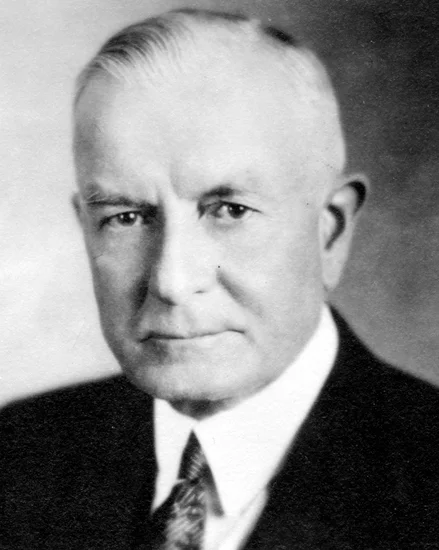
Thomas J. Watson, who transformed IBM from a small business machine company into a global technology giant, passed away at age 82. His visionary leadership revolutionized American business practices and corporate culture.
Watson’s emphasis on employee development and customer service became industry standards. His death marked the end of an era in American business leadership and technological innovation.
1975 – Organized Crime Boss Sam Giancana Assassinated
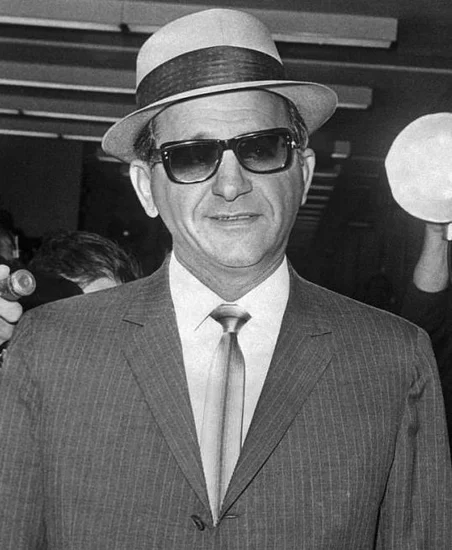
Chicago mob boss Sam Giancana was murdered at his home, ending decades of influence over organized crime operations. His death sent shockwaves through America’s criminal underworld.
Giancana’s assassination marked a turning point in organized crime history. Federal investigations intensified as law enforcement agencies sought to dismantle remaining criminal networks.
1990 – Communist Party of Russian SFSR Founded
The Communist Party of the Russian Soviet Federative Socialist Republic established itself in Moscow as the Soviet Union faced internal political pressures. Party leaders sought to maintain communist control amid growing democratic movements.
The party’s formation represented desperate attempts to preserve communist authority. This political maneuvering occurred as the Soviet system approached its final collapse.
Transportation and Infrastructure on June 19
1960 – Charlotte Motor Speedway Hosts First NASCAR Race
Charlotte Motor Speedway conducted its inaugural NASCAR race, the World 600, marking a milestone in American motorsports history. The event attracted thousands of racing enthusiasts to North Carolina.
The speedway’s opening expanded NASCAR’s reach into new markets and established Charlotte as a major racing destination. This first race helped solidify stock car racing’s place in American popular culture.
1991 – Last Soviet Troops Leave Hungary
The final Soviet military units withdrew from Hungary, ending decades of occupation following World War II. The withdrawal symbolized the collapse of Soviet influence in Eastern Europe.
Hungarian citizens celebrated the departure of foreign troops from their territory. This military withdrawal represented Hungary’s return to full sovereignty and independence from Soviet control.
2005 – Michelin Tire Failures Disrupt Formula One Race
Fourteen Formula One cars withdrew from the United States Grand Prix at Indianapolis after Michelin tire failures during practice sessions. Safety concerns forced teams to abandon the race after completing only the formation lap.
The unprecedented withdrawal left only six cars to compete in the race. This incident highlighted the critical importance of tire safety in high-speed motorsports competition.
Sports and Recreation on June 19
1986 – University of Maryland Basketball Star Len Bias Dies

Len Bias, the University of Maryland basketball standout selected by the Boston Celtics in the NBA draft, died tragically from a cocaine overdose at age 22. His death shocked the sports world and highlighted drug abuse problems.
Bias’s death prompted nationwide discussions about drug use among college athletes. The tragedy influenced anti-drug legislation and campus education programs across American universities.
2010 – Sudanese Basketball Giant Manute Bol Dies

Manute Bol, the 7-foot-7 Sudanese basketball player known for his shot-blocking ability and humanitarian work, died at age 47. His unique physical presence and charitable efforts made him beloved beyond basketball.
Bol’s death saddened both sports fans and human rights advocates. His legacy extended far beyond basketball statistics to include extensive humanitarian work in his native Sudan.
1985 – Japanese Professional Golfer Ai Miyazato Born

Ai Miyazato entered the world in Japan, destined to become one of the country’s most successful professional golfers. Her birth marked the beginning of a career that would inspire Japanese women’s golf.
Miyazato would later dominate both Japanese and American professional golf tours. Her achievements helped popularize women’s golf throughout Asia and established new standards for international competition.
Notable Births on June 19
1903 – Baseball Legend Lou Gehrig Born
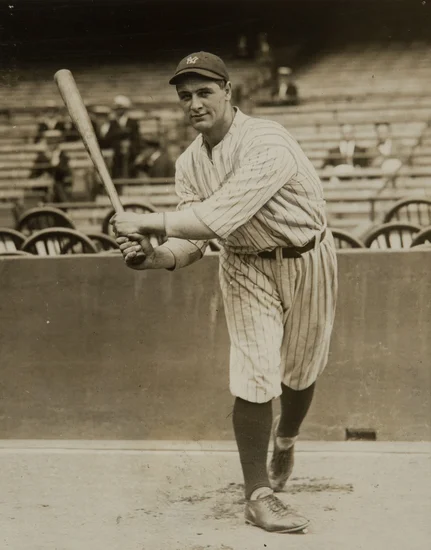
Henry Louis “Lou” Gehrig was born in New York City, beginning a life that would make him one of baseball’s most beloved figures. His immigrant parents instilled strong work ethics that would define his professional career.
Gehrig would earn the nickname “Iron Horse” for his consecutive games streak. His tragic battle with ALS brought national attention to the disease that now bears his name.
1947 – Novelist Salman Rushdie Born
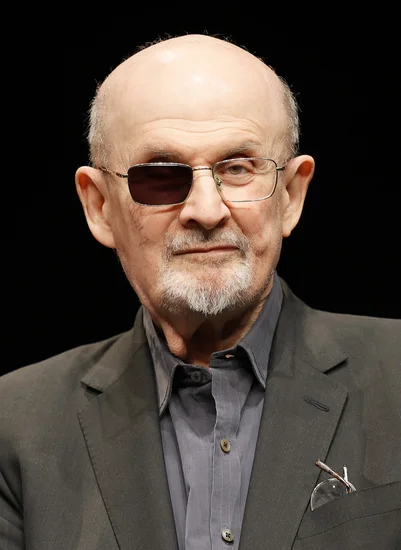
Salman Rushdie entered the world in British India, destined to become one of literature’s most controversial and acclaimed authors. His multicultural background would deeply influence his writing style.
Rushdie’s novels would blend magical realism with political commentary. His work “The Satanic Verses” would later spark international controversy and force him into hiding for years.
1945 – Democracy Advocate Aung San Suu Kyi Born

Aung San Suu Kyi was born in Myanmar, daughter of the country’s independence hero. Her birth occurred during a pivotal period in Burmese history as the nation sought freedom from colonial rule.
Suu Kyi would later lead Myanmar’s pro-democracy movement and win the Nobel Peace Prize. Her political career would span decades of struggle against military dictatorship.
1964 – Future British Prime Minister Boris Johnson Born

Alexander Boris de Pfeffel Johnson was born in New York City to British parents, beginning a life that would lead to the highest offices in British politics. His early years were marked by international mobility and elite education.
Johnson would later serve as Mayor of London and Prime Minister of the United Kingdom. His colorful personality and political positions would make him one of Britain’s most recognizable leaders.
1978 – NBA Star Dirk Nowitzki Born

Dirk Nowitzki was born in Germany, becoming one of Europe’s most successful basketball exports to the NBA. His height and shooting ability would revolutionize the power forward position.
Nowitzki would lead the Dallas Mavericks to an NBA championship in 2011. His international success helped globalize professional basketball and inspired European players worldwide.
1978 – Actress Zoe Saldana Born

Zoe Saldana was born in New Jersey to Dominican and Puerto Rican parents, beginning a journey that would make her one of Hollywood’s most bankable stars. Her multicultural heritage would influence her career choices.
Saldana would star in major science fiction franchises including “Star Trek,” “Avatar,” and “Guardians of the Galaxy.” Her performances helped redefine representation in blockbuster entertainment.
1906 – Nobel Prize Winner Ernst Boris Chain Born
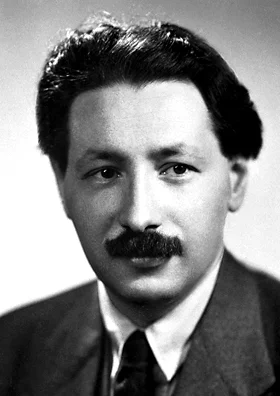
Ernst Boris Chain was born in Germany, beginning a life dedicated to biochemical research. His Jewish heritage would later force him to flee Nazi persecution and continue his work in Britain.
Chain would win the Nobel Prize in Physiology or Medicine for his work developing penicillin. His research saved countless lives and revolutionized modern medicine.
1962 – Entertainer Paula Abdul Born

Paula Abdul was born in California, destined to become a multi-talented entertainer spanning music, dance, and television. Her early training in dance would provide the foundation for her diverse career.
Abdul would achieve success as a pop singer, choreographer, and television personality. Her work on “American Idol” helped launch numerous singing careers and shaped reality television.
Notable Deaths on June 19
1937 – Peter Pan Creator J.M. Barrie Dies
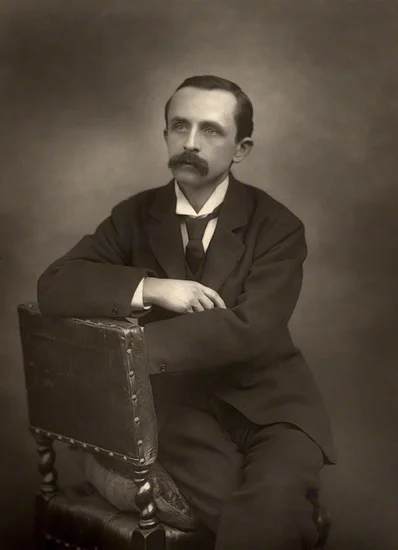
Sir James Matthew Barrie, the Scottish novelist and playwright who created Peter Pan, died at age 77. His immortal character had captured children’s imaginations worldwide for decades.
Barrie’s death marked the end of an era in children’s literature. His contributions to theater and storytelling continued inspiring generations of writers and entertainers.
1953 – Ethel Rosenberg Executed for Espionage

Ethel Rosenberg died in the electric chair at Sing Sing prison, convicted of passing atomic secrets to the Soviet Union. Her execution alongside her husband Julius became one of the Cold War’s most controversial events.
The Rosenberg executions divided American public opinion and sparked international protests. Many questioned whether the evidence justified such extreme punishment during the McCarthy era.
1953 – Julius Rosenberg Executed for Espionage
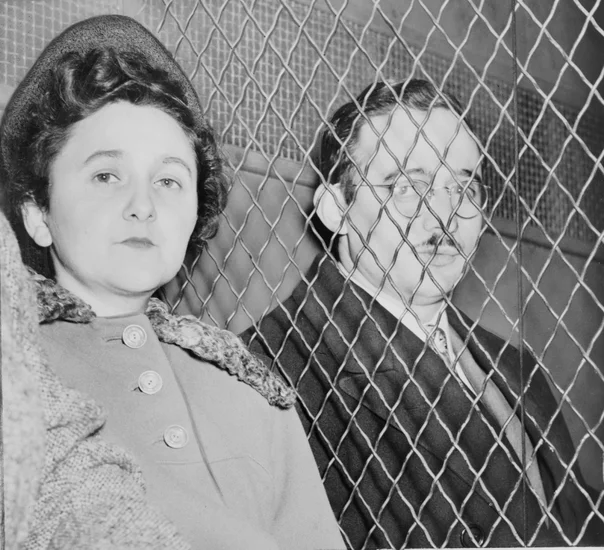
Julius Rosenberg faced execution at Sing Sing prison for allegedly conspiring to pass nuclear weapons information to Soviet agents. His death sentence reflected Cold War tensions and domestic anti-communist hysteria.
The Rosenberg case became a symbol of McCarthy-era persecution. Debates about their guilt and the appropriateness of their punishment continued for decades after their deaths.
1993 – Nobel Laureate William Golding Dies
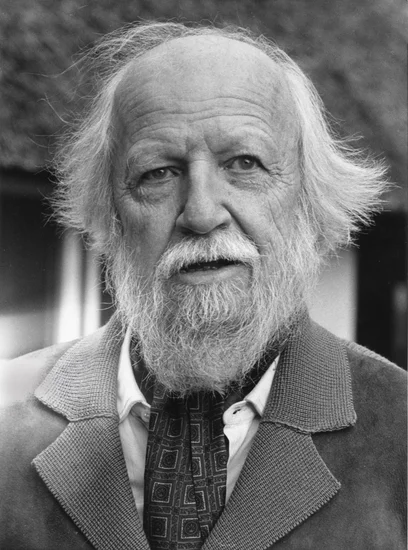
William Golding, the British author who won the Nobel Prize in Literature, died at age 81. His novel “Lord of the Flies” had become a classic examination of human nature and civilization.
Golding’s death marked the loss of one of literature’s most profound voices. His exploration of humanity’s capacity for both good and evil influenced countless readers and writers.
2013 – Sopranos Star James Gandolfini Dies

James Gandolfini, the American actor who revolutionized television drama through his portrayal of Tony Soprano, died suddenly at age 51. His unexpected death shocked the entertainment industry and fans worldwide.
Gandolfini’s performance had transformed television storytelling and established new standards for dramatic acting. His death marked the end of a groundbreaking career that bridged film and television.
2016 – Young Actor Anton Yelchin Dies

Anton Yelchin, the talented young actor known for his roles in “Star Trek” and independent films, died in a tragic accident at age 27. His death cut short a promising career in Hollywood.
Yelchin’s passing devastated colleagues and fans who recognized his exceptional talent. His performances demonstrated remarkable range and depth despite his young age.
Holidays and Observances on June 19
Juneteenth Celebrates African American Freedom
Juneteenth commemorates the end of slavery in the United States, marking the day in 1865 when news of emancipation reached enslaved people in Texas. The holiday represents one of America’s most significant freedom celebrations.
African American communities have observed Juneteenth for over 150 years through festivals, parades, and educational events. The holiday gained renewed national attention and federal recognition in recent years.
World Sickle Cell Day Raises Global Awareness
World Sickle Cell Day brings international attention to sickle cell disease, a genetic disorder affecting millions worldwide. The observance promotes research funding and improved treatment access for patients.
Medical organizations use this day to educate the public about sickle cell disease symptoms and management. The global campaign aims to reduce stigma and improve quality of life for affected individuals.
Labour Day Celebrated in Trinidad and Tobago
Trinidad and Tobago observes Labour Day to honor workers’ contributions to national development. The holiday celebrates the achievements of organized labor and workers’ rights movements.
Trade unions and civic organizations organize parades and ceremonies throughout the twin-island nation. The day serves as an opportunity to address contemporary labor issues and workers’ welfare.
